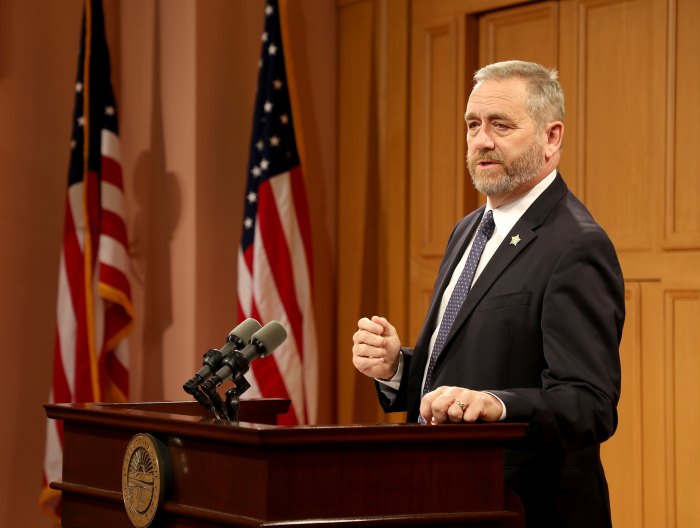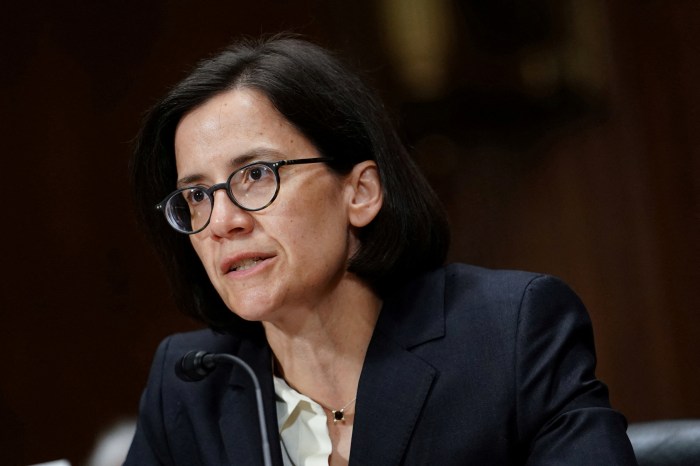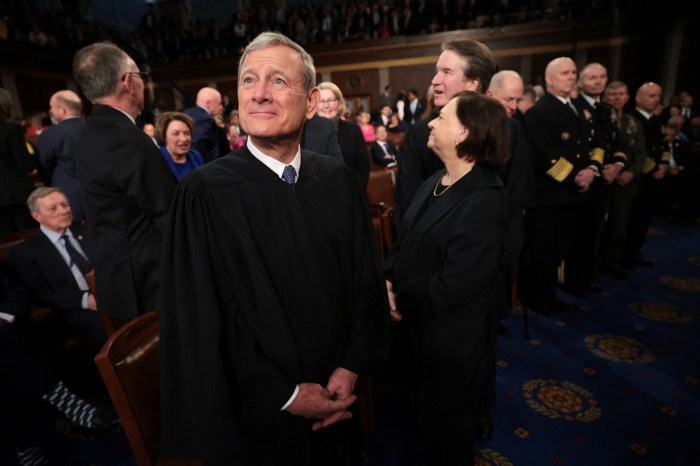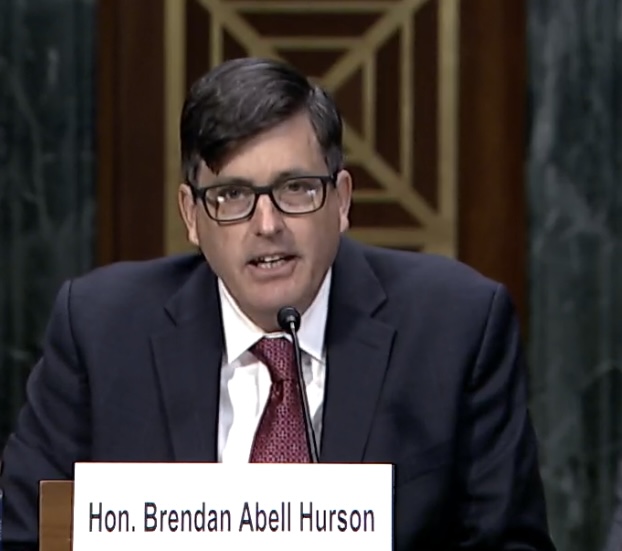In a sharp reversal of its prior rulings, the Equal Employment Opportunity Commission (EEOC), the federal agency created by the 1964 Civil Rights Act with authority for interpreting and applying Title VII, which bans, among other things, sex discrimination in employment, has ruled that a “complaint of discrimination based on gender identity, change of sex, and/or transgender status” can be pursued on grounds of sex discrimination.
The unanimous April 20 ruling, first reported by Metro Weekly, overturned EEOC’s prior rulings from 1984, 1994, and 1996, which took a narrow view of the concept of “discrimination because of sex.”
In Macy v. Holder, the Commission concluded that developments since then — especially significant federal circuit and district court decisions — have led to a new understanding of the law.
The ruling came on a complaint by Mia Macy, who is represented in the case by the San Francisco-based Transgender Law Center. According to her complaint, Macy applied for a position for which she was qualified at the Walnut Creek crime laboratory of the US Bureau of Alcohol, Tobacco, Firearms and Explosives (ATF), an agency within the Department of Justice. At the time, she was still presenting as a man. After speaking by phone with the lab’s director, she was told she would be hired pending a background investigation.
Macy’s application was processed through Aspen of D.C., a government contractor responsible for filling the position. She submitted the relevant Aspen paperwork in March 2011, and the necessary background investigation was begun.
Shortly after submitting her application, Macy informed Aspen via email that she was in the process of transitioning from male to female and asked them to inform the laboratory director. On April 8, five days after Aspen informed her they had relayed the information to the lab director, Macy received an email from Aspen stating that due to federal budget reductions, the position was no longer available. She followed up with an Equal Employment Opportunity (EEO) counselor at ATF, however, and was told the position had in fact been filled with a different applicant who was the “farthest along in the background investigation.” Concluding this was a pretext for discrimination, Macy filed a complaint with the agency’s EEO office.
On the formal complaint form, Macy checked off “sex” and “female” and typed in “gender identity” and “sex stereotyping” as the basis for her complaint, writing that she was discriminated against on the basis of “my sex, gender identity (transgender woman) and on the basis of sex stereotyping.”
ATF responded that “gender identity stereotyping cannot be adjudicated” before the EEOC under Title VII, and that her claim would instead be processed according to “Department of Justice Policy,” which under Obama administration practice bars discrimination based on gender identity. The president issued a formal policy — though not an executive order — barring such discrimination for all civilian employees of the federal government.
Macy’s attorney, however, did not want the complaint addressed as an internal government hiring issue, but rather insisted on the right to litigate the Title VII claim under the 1964 Act. This time, AFT responded that it would process Macy’s claim “based on sex (female)” as a Title VII complaint, but handle her “gender identity stereotyping” complaint under the agency’s “policy and practice.”
Frustrated once again by AFT’s response, Macy’s attorney submitted a notice of appeal, taking the question before the Commission, a five-member body that has authority to review decisions made by Executive Branch EEO offices. The attorney asserted that the EEOC has jurisdiction over her entire claim, and that the agency’s “reclassification” of her gender identity claim was, in effect, a dismissal under Title VII.
The Commission, made up of both Democratic and Republican appointees, unanimously agreed that Macy’s entire claim is subject to Title VII’s ban on sex discrimination, a view adopted by a number of federal courts in recent years.
Most recently, the 11th Circuit Court of Appeals, based in Atlanta, ruled late last year that discrimination by a government agency against an employee who was transitioning from male to female was sex discrimination in violation of the 14th Amendment’s Equal Protection Clause. That ruling cited prior decisions by the Sixth Circuit, upholding a Title VII sex discrimination claim by a transgender fire fighter in Ohio, and by the Ninth Circuit, which found that a plaintiff victimized due to gender identity has a cause of action under the federal Violence Against Women Act.
These federal courts relied, in turn, on a 1989 Supreme Court ruling in Price Waterhouse v. Hopkins, which — in a case brought by a woman whose rejection for partnership suggested gender stereotyping by her employer — stated, “Congress’ intent to forbid employers to take gender into account in making employment decisions appear on the face of the statute.” The Price Waterhouse ruling accepted the plaintiff’s argument that evidence of sex-stereotyped thinking by an employer would support a claim of intent to discriminate on the basis of sex.
In the Macy case, the EEOC, wrote, “When an employer discriminates against someone because the person is transgender, the employer has engaged in disparate treatment ‘related to the sex of the victim.’ This is true regardless of whether an employer discriminates against an employee because the individual has expressed his or her gender in a non-stereotypical fashion, because the employer is uncomfortable with the fact that the person has transitioned or is in the process of transitioning from one gender to another, or because the employer simply does not like that the person is identifying as a transgender person. In each of these circumstances, the employer is making a gender-based evaluation, thus violating the Supreme Court’s admonition that ‘an employer may not take gender into account in making an employment decision.’”
The EEOC decision acknowledged that Congress likely did not consider discrimination faced by transgender individuals in enacting Title VII in 1964 or amending it in 1972, quoting another Supreme Court ruling that found that “statutory prohibitions often go beyond the principal evil” they were passed to combat “to cover reasonably comparable evils.” Title VII anti-discrimination protections “must extend,” the high court found, to sex-based discrimination “of any kind.”
Macy’s complaint is still just that — a complaint; the EEOC was not rendering a final decision on the merits of her claim. The case was sent back to the AFT for processing as a Title VII sex discrimination claim.
The EEOC’s ruling marks a major advance for transgender rights, not least because federal courts are supposed to generally defer to its interpretations of Title VII. The plaintiff victory in the Sixth Circuit Title VII gender identity discrimination case was appealed to the Supreme Court, but that petition was denied, suggesting that for now the high court is not inclined to intervene as this doctrine develops in the lower courts.
The ruling may raise a tough question regarding the political strategy for enacting the Employment Non-Discrimination Act (ENDA), which would ban bias based on sexual orientation and gender identity or expression. In 2007, the Democratic-controlled House of Representatives passed the legislation, but only after its lead sponsor, out gay Democrat Barney Frank of Massachusetts, said its success depended on dropping the gender identity and expression language from the bill. A version inclusive of those categories was introduced in 2009, but failed to pass before Republicans regained control of the House in 2010.
The EEOC’s action could mean that protection against gender identity discrimination will no longer be held hostage to the political vagaries of Capitol Hill. Whether that, in turn, leads some to ask — in the event Democrats recapture the House and hold the Senate this year — whether ENDA should be stripped back to protections only based on sexual orientation remains to be seen. That would likely be a very contentious debate within the LGBT community.






























